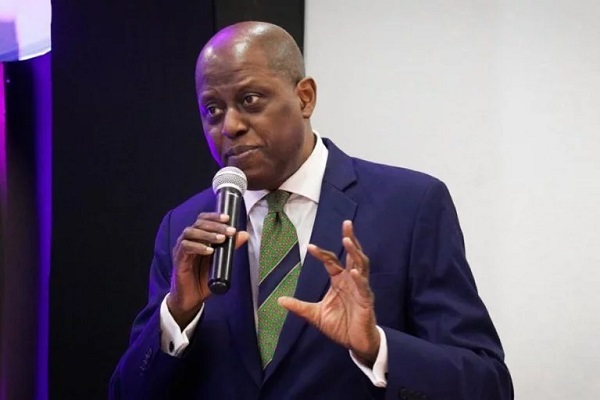The Chief of the Central Bank of Nigeria (CBN) has candidly acknowledged that there’s no magical solution within the bank’s grasp to resolve the ongoing economic challenges in Nigeria. In a communication distributed on Tuesday, as reported by Reuters, he emphasized the limitations faced by the CBN in addressing the multifaceted issues currently confronting the nation.
Nigeria finds itself contending with a sliding naira, and a looming double-digit inflation rate that analysts from KPMG predict could soar to 30%. Additionally, the country grapples with a substantial debt burden amounting to N87 trillion. The gravity of these economic hurdles cannot be understated, and the CBN’s acknowledgment underscores the complexity of the situation.
The Chief of the CBN, while recognizing the absence of a proverbial “magic wand,” outlined a strategic approach that the central bank could employ to foster economic growth. Among these measures, he highlighted the importance of supporting institutions and financial products that can fortify emerging sectors of the economy. Furthermore, he emphasized the significance of widening financial inclusion and rallying multilateral stakeholders to endorse both government and private sector initiatives.

A notable departure from the previous strategy involves the CBN’s role in development financing. The Chief outlined a shift from directly funding initiatives to assuming more advisory roles in alignment with the government’s economic agenda. This move is motivated by the recognition that the current approach has blurred the lines between monetary and fiscal policy. Such blurring, as explained by the Chief, diminishes the central bank’s efficacy in controlling inflation and managing foreign reserves.
This strategic recalibration contrasts with the actions of the former Chief, Godwin Emefiele. Emefiele, in his tenure, pursued unconventional monetary policies, artificially maintaining the strength of the naira. His interventions extended to providing liquidity to money markets and offering loans to the federal government beyond constitutional thresholds. Notably, Emefiele directly funded government interventions in various sectors, particularly agriculture, and extended loans to the federal government amounting to a substantial N23 trillion via the Ways and Means Act.
The current Chief’s decision to pull back from direct development finance interventions signifies a departure from the more interventionist stance of his predecessor. The move towards advisory roles aligns with a broader strategy to realign the CBN’s functions with the government’s economic objectives. By doing so, the central bank aims to regain control over monetary policy, reinforcing its capacity to manage inflation and foreign reserves.
This shift also reflects a recognition of the interconnectedness of monetary and fiscal policies. The blurring of these lines, as observed in the previous approach, had unintended consequences that impacted the central bank’s ability to navigate economic challenges effectively. The Chief’s emphasis on advisory roles underscores a commitment to more nuanced and collaborative approaches that leverage the expertise of various stakeholders.
As the CBN navigates this recalibration, the broader economic landscape will likely witness changes in how financial institutions, businesses, and the government collaborate to address Nigeria’s economic challenges. This shift towards advisory roles not only signals a strategic realignment but also underscores a commitment to fostering sustainable economic growth through collaboration and well-informed decision-making. Only time will reveal the full extent of the impact of this shift in approach, but it marks a significant chapter in the ongoing evolution of Nigeria’s economic policies.
Support InfoStride News' Credible Journalism: Only credible journalism can guarantee a fair, accountable and transparent society, including democracy and government. It involves a lot of efforts and money. We need your support. Click here to Donate
